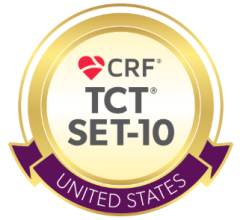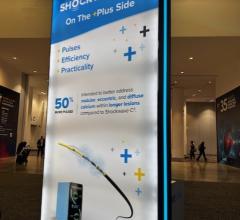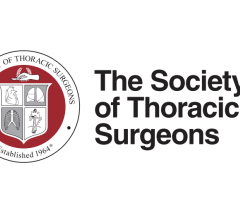
October 3, 2016 — Keystone Heart Ltd. announced data recently published in the American Journal of Cardiology demonstrating new brain lesions in 94 percent of patients undergoing transcatheter aortic valve replacement (TAVR). The lesions were detected by diffusion weighted magnetic resonance imaging (DWI-MRI) (n=34) prior to hospital discharge.
“These data show the realities of stroke risk among patients undergoing TAVR, and underscore the need for physicians to mitigate the peri procedural brain injury,” said Jeffrey W. Moses, M.D., professor of medicine Columbia University Medical Center.
Neuro-TAVR, a prospective, observational study conducted in five centers in the United States, evaluated 44 consecutive patients who had undergone TAVR and findings demonstrated:
- An average of at least 10.4 new lesions per patient with a mean of 295 mm3 (71.6 to 799.6 mm3) total lesion volume was seen among the 34 patients evaluated with DWI-MRI post-TAVR;
- 7.3 percent of these patients (n=34) experienced an ischemic stroke, as defined by Valve Academic Research Consortium (VARC) 2 definitions at 30 days post-TAVR;
- Neurologic impairment, based on a worsening National Institutes of Health Stroke Scale (NIHSS), accompanied by DWI-MRI-documented cerebral infarction, was detected in 22.6 percent of patients undergoing DW-MRI (n=34) at discharge and in 14.8 percent at 30 days;
- Systematic use of serial NIHSS evaluation in all patients undergoing DW-MRI uncovered additional neurologic deficits in 16 percent of patients before discharge;
- 59.4 percent of patients had worsening of scores when evaluated by National Institutes of Health Stroke Scale (NIHSS) or Montreal Cognitive Assessment (MoCA) prior to discharge, and 40.7 percent of patients at 30 days;
- Thirty-three percent of all patients (n=44) had a worsening MoCA score from baseline to discharge and a 41 percent worsening to 30 days; and
- A consistent decrease in cognitive measures was found in 20 to 56 percent of all patients (n=44) at 30 days compared to pre-TAVR baseline, based on paper and pencil neuropsychological testing.
Importantly, the results likely underestimate the true degree of cognitive decline because subjects with larger cerebral infarctions were less likely to complete subsequent cognitive assessments, according to study authors.
“These data underscore the wide spectrum of neurologic injury after TAVR and emphasize the critical need for meaningful standardized assessment methods and definitions — that incorporate neurology expertise — in reporting neurologic outcomes in clinical trials” said lead author Alexandra Lansky, M.D., professor of medicine, Yale University School of Medicine.
The trial was conducted at Yale University School of Medicine, New Haven, Conn.; The Heart Hospital, Baylor University, Plano, Texas; Baptist Hospital of Miami, Miami, Fla.; St. Francis Hospital, Roslyn, N.Y.; and College of Physicians and Surgeons, Columbia University, New York.
While this study is the first of its kind in the United States, numerous other studies conducted in Europe have shown similar results demonstrating by imaging that 58 to 100 percent of patients have new brain damage following TAVR.
Other published and presented data have supported the safety and benefits of brain protection for patients undergoing TAVR using the Keystone Heart TriGuard device. Recently, data presented as part of PCR London Valves 2016, demonstrated the safety and efficacy of covering all three cerebral branches with the TriGuard Cerebral Embolic Protection device reducing significantly both clinical symptoms and new brain lesions post-TAVR.
For more information: www.ajconline.org


 October 31, 2025
October 31, 2025 









